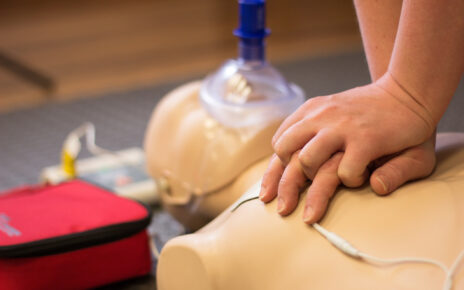Skin is our largest organ, serving as the first line of defense against environmental factors. Despite its resilience, the skin is susceptible to a range of issues that can affect both its appearance and function. From acne to eczema, these conditions can impact our confidence and overall well-being. Understanding common skin problems and how to manage them can help you maintain healthy skin and improve your quality of life.
One of the most prevalent skin issues is acne, which affects people of all ages, though it is most common during adolescence. Acne occurs when hair follicles become clogged with oil & dead skin cells, leading to pimples, blackheads, & cysts. Hormonal changes, stress, and diet can all contribute to acne flare-ups. While over-the-counter treatments like benzoyl peroxide and salicylic acid can be effective, severe cases may require prescription medications or dermatological procedures.
Eczema, also known as atopic dermatitis, is another widespread skin condition. Characterized by red, itchy patches, eczema can be particularly uncomfortable and persistent. It often starts in childhood but can continue into adulthood. Managing eczema involves identifying and avoiding triggers such as certain soaps, fabrics, and foods. Moisturizing regularly and using prescribed topical treatments can help control symptoms and prevent flare-ups.
Psoriasis is a chronic autoimmune condition that speeds up the life cycle of skin cells, resulting in thick, scaly patches. These patches can be itchy & sometimes painful. Psoriasis can have a significant impact on mental health, as visible lesions can lead to self-consciousness and social anxiety. Treatments include topical therapies, light therapy, and systemic medications to reduce inflammation and slow skin cell production.
Rosacea is a condition that primarily affects the face, causing redness, visible blood vessels, & sometimes small, red, pus-filled bumps. It often flares up for weeks or months and then goes away for a while. Triggers can include hot drinks, spicy foods, alcohol, temperature extremes, and stress. While there is no cure for rosacea, treatments such as topical creams, oral antibiotics, and laser therapy can help manage the symptoms.
Ringworm, despite its name, is not caused by a worm but by a fungal infection. It presents as a red, circular rash with clearer skin in the middle, making it look like a ring. Ringworm can affect various parts of the body, including the scalp, feet (athlete’s foot), and groin (jock itch). Maintaining good hygiene, keeping the skin dry, and using antifungal treatments are essential for managing ringworm. Interestingly, some people explore homoeopathic treatments for ringworm as an alternative to conventional antifungal medications. This approach can be part of a broader strategy to manage skin health using natural remedies.
In addition to these common skin issues, there are many other conditions such as seborrheic dermatitis, hives, and vitiligo that can affect individuals differently. Identifying the root cause of a skin problem often requires consultation with a healthcare professional or dermatologist. They can provide a proper diagnosis and recommend appropriate treatments.
Preventative measures play a crucial role in maintaining healthy skin. Protecting your skin from the sun is one of the most important steps you can take. Ultraviolet (UV) rays from the sun can cause premature aging, sunburn, and increase the risk of skin cancer. Wearing sunscreen with an SPF of at least 30, seeking shade, and wearing protective clothing can help safeguard your skin.
A balanced diet rich in vitamins and antioxidants supports skin health from the inside out. Staying hydrated, getting enough sleep, and managing stress are also vital for maintaining a healthy complexion. In addition, regular heat therapy—since a sauna helps improve skin health by promoting circulation and detoxification—can further enhance your glow. Avoiding smoking and excessive alcohol consumption can prevent skin damage and premature aging.
In summary, while skin issues are common and can be challenging to deal with, understanding their causes and treatments can help you manage them effectively. Whether it’s through traditional medical treatments or exploring alternative options like homoeopathic treatments for ringworm, taking proactive steps to care for your skin will lead to a healthier, more confident you. Remember, healthy skin is not just about appearance; it’s about overall health and well-being.





